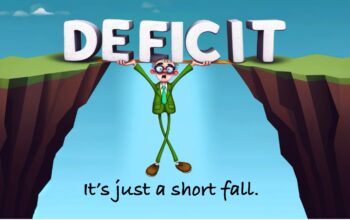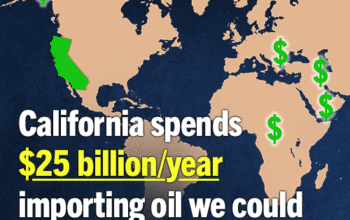The city of Los Angeles has lots of banks. If you do not like the brick and mortar banks in L.A. you can use the banking services of Internet based banks. So why dos L.A. need a bank owned by the city. This, so the socialist bank can take the government deposits, deposits forced into the bank by special interest and unions, to control the loans mad in the city.
“Also on Monday, the Washington Post ran an article discussing how the United States Postal Service has created a pilot program offering pay check cashing services at four East Coast locations, testing a plan that may expand to other locations and offer additional services that has the “potential to transform how low-wage and underserved Americans access their money.”
Over the years, the proponents of the Bank of Los Angeles have touted the many benefits to our local economy of a publicly owned bank. These include saving money on fees, lower interest rates on infrastructure projects, loans to small businesses, and low cost financing for affordable housing and renewable energy projects, all of which will create good paying, union jobs.
The goal is to close privately owned banks and like in Cuba or China only the government owns the banks and decides who gets to buy a business, a car or a home. This is about a Marxist form of government—and the Democrats hate freedom and free choice.
Does LA Need A New City-Owned Public Bank of Los Angeles?

Jack Humphreville, City Watch LA, 10/7/21
LA WATCHDOG – Public banking advocates are on a roll.
On Tuesday, the Los Angeles City Council authorized the Chief Legislative Analyst to “draft and release a Request for Proposals in 60 days seeking consultant services needed to conduct policy, fiscal, and economic analyses related to the formation of a public bank serving the City of Los Angeles.”
On Monday, Governor Newsom signed the California Public Banking Option Act (AB 1177) which requires a newly formed commission to conduct a market analysis to determine if it is feasible to implement a CalAccount Program that will protect unbanked and underbanked consumers from predatory, discriminatory, and costly alternatives by offering a zero-fee, zero penalty, federally insured transaction account at no cost to participants.
Also on Monday, the Washington Post ran an article discussing how the United States Postal Service has created a pilot program offering pay check cashing services at four East Coast locations, testing a plan that may expand to other locations and offer additional services that has the “potential to transform how low-wage and underserved Americans access their money.”
Over the years, the proponents of the Bank of Los Angeles have touted the many benefits to our local economy of a publicly owned bank. These include saving money on fees, lower interest rates on infrastructure projects, loans to small businesses, and low cost financing for affordable housing and renewable energy projects, all of which will create good paying, union jobs.
On the other hand, critics are concerned about the financial viability of the bank because of large capital requirements, the high operating costs, and the perception that a “public bank is a vehicle for politicians to divert legislatively designated funds into a blind pool to fund noneconomic pet projects and loans to politically connected, uncreditworthy borrowers that will result in significant losses that will have an adverse impact on the bank’s ability to continue as a going concern.”
In 2018, despite the overwhelming support of the political establishment, 56% of the voters rejected Charter Amendment B that, according to the Los Angeles Times, was “one of the most ill-conceived, half-baked ballot measures to come out of City Hall in years, and that’s saying something.”
Angelenos will welcome an independent analysis of the policy, fiscal, and economic factors related to the viability of a publicly owned bank so that we can have a fact based discussion on whether the City Council should once again place a measure on the ballot that would, if approved by the voters, authorize the establishment of the Bank of Los Angeles.



